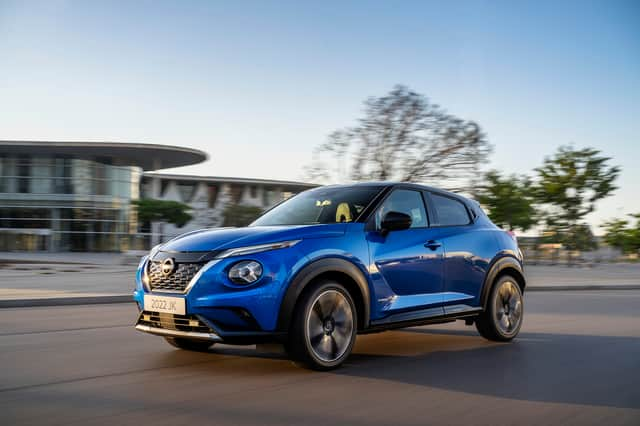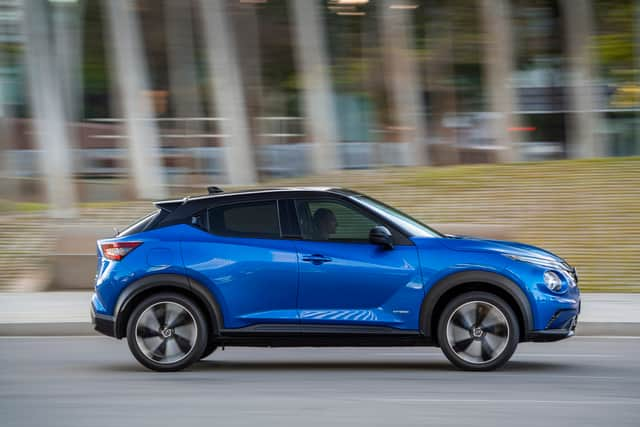Nissan Juke hybrid review: good things come in small packages


You could never accuse the Nissan Juke of being a subtle car.
The first generation of the compact crossover was well ahead of its time with a design that stood out from the raised hatchback aesthetic of most mini-SUVs. Its googly-eyed front end, angular rear and flared arches caught the eye and divided opinion like few other cars of the time.
Advertisement
Hide AdAdvertisement
Hide AdSince then, pretty much every car maker has decided the small crossover segment is the “funky styling” one, throwing all sorts of weird and wonderful shapes into the mix. But Nissan hasn’t taken this lying down and the second-generation Juke, launched in 2019 has taken the first-gen’s looks and run with them.
The multi-level lights and gawping grille that set the first car apart are still present and correct and now LED-equipped. The pinched rear glasshouse gives a swooping appearance to the car’s rear end and the swollen wheel arches are present and correct, as are the hidden door handles that help the lines but are a nightmare for small children to reach.
The looks certainly won’t be to everyone’s taste but, personally, I’m a big fan, especially in the vibrant Magnetic Blue and contrast black roof of our test car.
The second-generation Juke was launched with a single 1.0-litre petrol engine option but in 2022 Nissan added a hybrid as part of its march towards full electrification of its range.
Advertisement
Hide AdAdvertisement
Hide AdThe hybrid uses a 1.6-litre petrol engine and two electric motors - a 36kW main drive unit and a 15kW integrated starter generator with a 1.25kWh battery. Combined they give the Juke 141bhp - around 30bhp more than the regular petrol. Even with the extra power, the 0-62mph run takes 10 seconds but in use the hybrid feels more spritely than that.
The car always starts in EV mode and the electric motor kicks in instantly when you apply the throttle so at low speeds you get an immediate spurt of acceleration that’s really useful at junctions or for nipping into a newly opened gap in traffic. Once the EV motor’s potential is expended there’s a moment’s hesitation while the petrol gets going but it’s less pronounced than in some similar cars and the Juke moves along with decent pace.


Nissan says the hybrid brings a 25% improvement in economy, quoting official figures of 57mpg and 114g/km. However, we struggled to get even close to - averaging 42mpg. Even the car’s trip computer showed a long-term average in the high 40s. That makes the hybrid’s £3k premium over the equivalent 1.0 model hard to swallow.
The responsiveness of the hybrid does help get the most out of the Juke’s surprisingly lively and fun chassis. It still leans like a drunk after a dozen pints but the steering is keen and there’s plenty of grip. You’ll find yourself barrelling along a county road enjoying the experience far more than you night expect. That said, the Juke does ride firmly, especially at lower speeds, so feels jittery in its natural urban habit.
